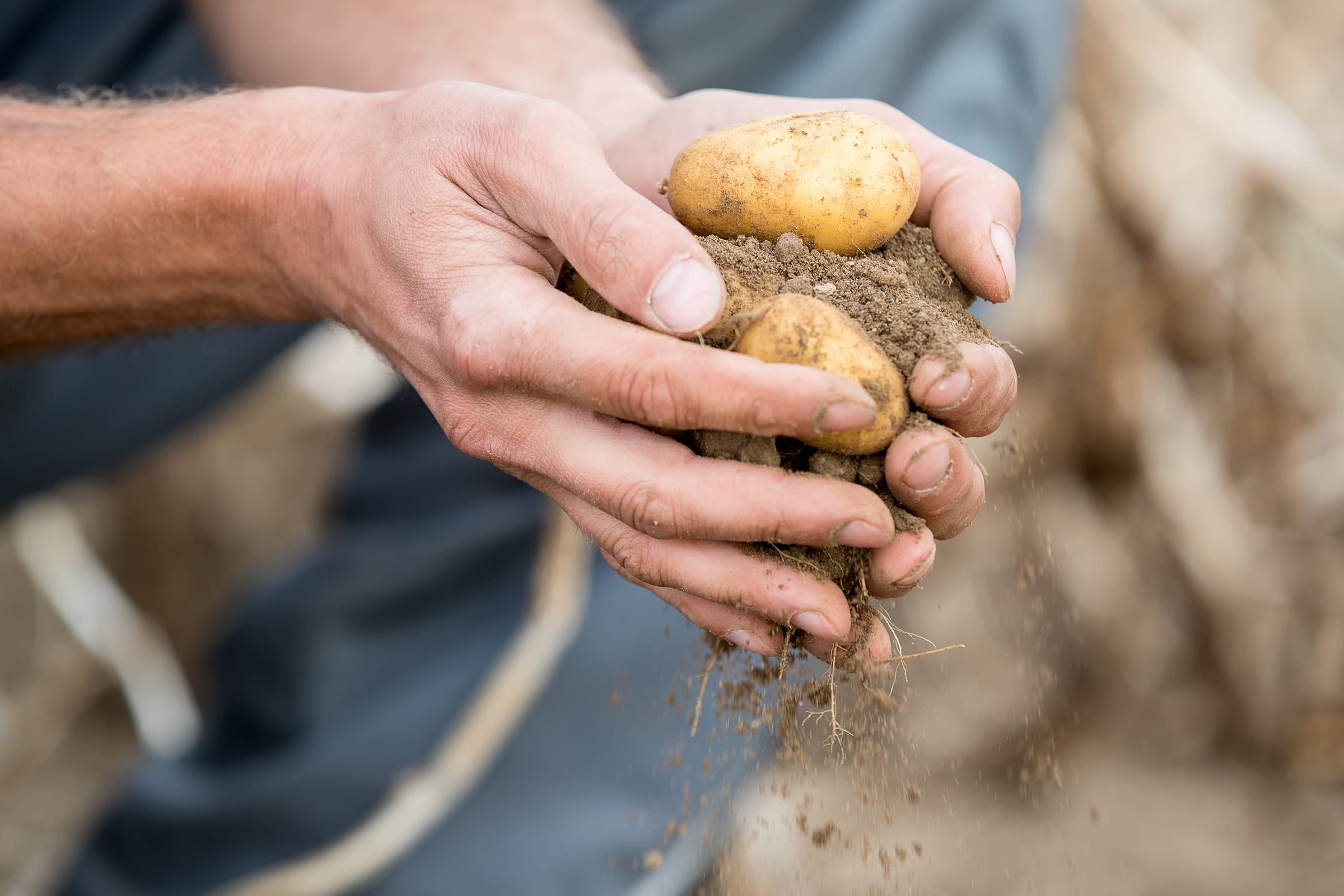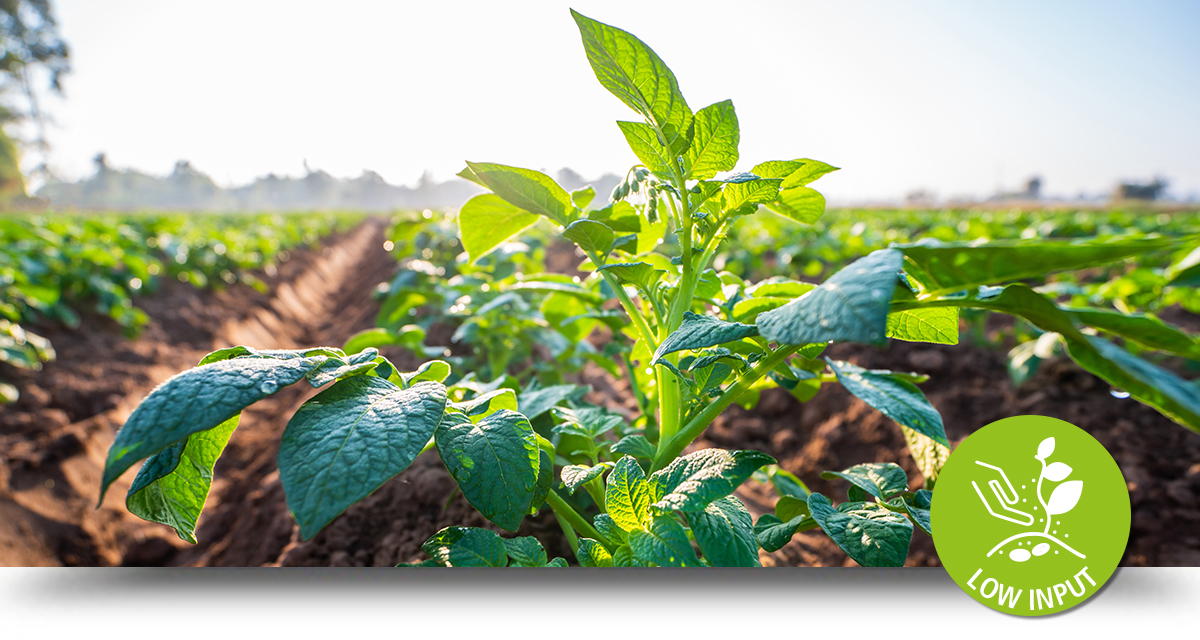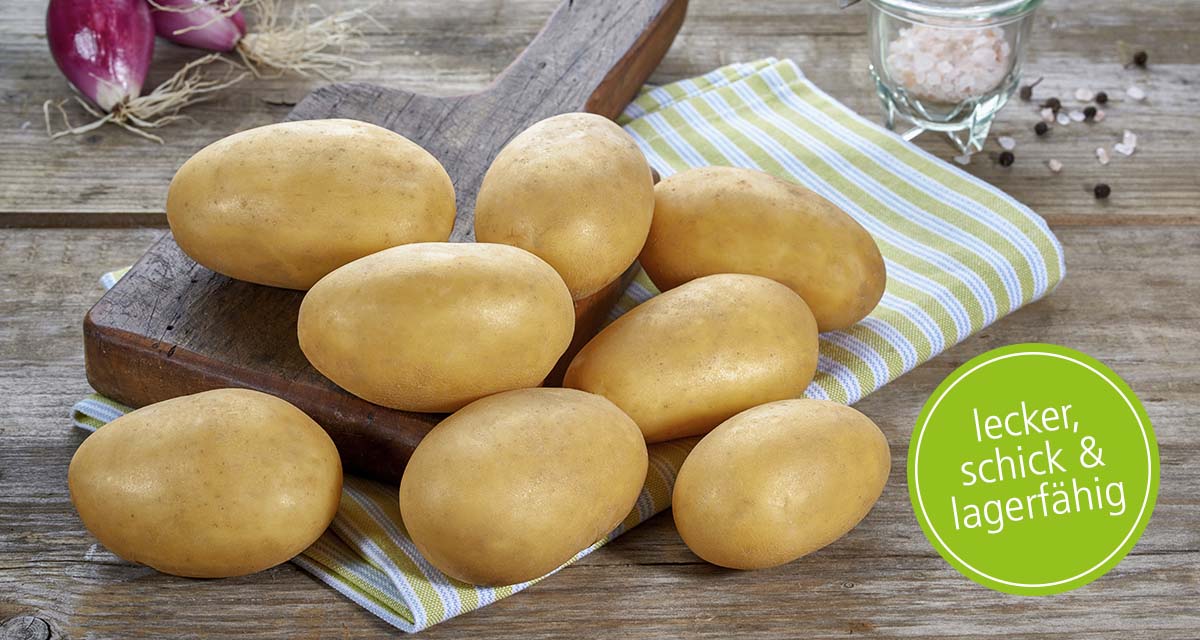EUROPLANT Aardappel B.V.
Kamal Smid
Pluto 7
NL-8448 CM Heerenveen
Mobil: +31 (0)631 380695
Fax: +31 (0)513 650108
ksmid(at)europlant.biz
EUROPLANT Pflanzenzucht GmbH
Wulf-Werum-Straße 1
D-21337 Lüneburg
Tel.: +49 (0)4131 748005
Fax: +49 (0)4131 7480580
info(at)europlant.biz
EUROPLANT Pflanzenzucht GmbH
Christian Krahn
Wulf-Werum-Straße 1
D-21337 Lüneburg
Tel.: +49 (0)4131 7480553
Fax: +49 (0)4131 7480583
ckrahn(at)europlant.biz
EUROPLANT Pflanzenzucht GmbH
Thomas Bottner
Wulf-Werum-Straße 1
D-21337 Lüneburg
Tel.: +49 (0)4131 7480552
Fax: +49 (0)4131 7480583
tbottner(at)europlant.biz
EUROPLANT Pflanzenzucht GmbH
Christian Krahn
Wulf-Werum-Straße 1
D-21337 Lüneburg
Tel.: +49 (0)4131 7480553
Fax: +49 (0)4131 7480583
ckrahn(at)europlant.biz
EUROPLANT Pflanzenzucht GmbH
Thomas Bottner
Wulf-Werum-Straße 1
D-21337 Lüneburg
Tel.: +49 (0)4131 7480552
Fax: +49 (0)4131 7480583
tbottner(at)europlant.biz
EUROPLANT Pflanzenzucht GmbH
Daniel Probst
Salesoffice Kaltenberg
Kaltenberg 1
D-84085 Langquaid
Tel.: +49 (0)9452 9336710
Fax: +49 (0)9452 9336767
dprobst(at)europlant.biz
EUROPLANT Aardappel B.V.
Kamal Smid
Pluto 7
NL-8448 CM Heerenveen
Mobil: +31 (0)613 380695
Fax: +31 (0)513 650108
ksmid(at)europlant.biz
EUROPLANT Pflanzenzucht GmbH
Thomas Bottner
Wulf-Werum-Straße 1
D-21337 Lüneburg
Tel.: +49 (0)4131 7480552
Fax: +49 (0)4131 7480583
tbottner(at)europlant.biz
EUROPLANT Pflanzenzucht GmbH
Thomas Bottner
Wulf-Werum-Straße 1
D-21337 Lüneburg
Tel.: +49 (0)4131 7480552
Fax: +49 (0)4131 7480583
tbottner(at)europlant.biz
EUROPLANT Aardappel B.V.
Kamal Smid
Pluto 7
NL-8448 CM Heerenveen
Mobil: +31 (0)613 380695
Fax: +31 (0)513 650108
ksmid(at)europlant.biz
EUROPLANT Pflanzenzucht GmbH
Christian Krahn
Wulf-Werum-Straße 1
D-21337 Lüneburg
Tel.: +49 (0)4131 7480553
Fax: +49 (0)4131 7480583
ckrahn(at)europlant.biz
EUROPLANT Pflanzenzucht GmbH
Thomas Bottner
Wulf-Werum-Str. 1
D-21337 Lüneburg
Tel.: +49 (0)4131 7480552
Fax: +49 (0)4131 7480583
tbottner(at)europlant.biz
EUROPLANT Pflanzenzucht GmbH
Wulf-Werum-Straße 1
D-21337 Lüneburg
Tel.: +49 (0)4131 748005
Fax: +49 (0)4131 7480580
info(at)europlant.biz
EUROPLANT Pflanzenzucht GmbH
Wulf-Werum-Straße 1
D-21337 Lüneburg
Tel. +49 (0)4131 748005
Fax: +49 (0)4131 7480580
info(at)europlant.biz
EUROPLANT Pflanzenzucht GmbH
Christian Krahn
Wulf-Werum-Straße1
D-21337 Lüneburg
Tel.: +49 (0)4131 7480553
Fax: +49 (0)4131 7480583
ckrahn(at)europlant.biz
EUROPLANT Pflanzenzucht GmbH
Jörg Renatus
Wulf-Werum-Straße 1
D-21337 Lüneburg
Tel.: +49 (0)4131 7480502
Fax: +49 (0)4131 7480580
jrenatus(at)europlant.biz
EUROPLANT Pflanzenzucht GmbH
Wulf-Werum-Straße 1
D-21337 Lüneburg
Tel.: +49 (0)4131 748005
Fax: +49 (0)4131 7480580
info(at)europlant.biz
EUROPLANT Pflanzenzucht GmbH
Thomas Bottner
Wulf-Werum-Straße 1
D-21337 Lüneburg
Tel.: +49 (0)4131 7480552
Fax: +49 (0)4131 7480583
tbottner(at)europlant.biz
EUROPLANT Pflanzenzucht GmbH
Christian Krahn
Wulf-Werum-Straße 1
D-21337 Lüneburg
Tel.: +49 (0)4131 7480553
Fax: +49 (0)4131 7480583
ckrahn(at)europlant.biz
EUROPLANT Pflanzenzucht GmbH
Christian Krahn
Wulf-Werum-Straße 1
D-21337 Lüneburg
Tel.: +49 (0)4131 7480553
Fax: +49 (0)4131 7480583
ckrahn(at)europlant.biz
EUROPLANT ŝlechtitelska spol. s.r.o.
EUROPLANT Aardappel B.V.
Kamal Smid
Pluto 7
NL-8448 CM Heerenveen
Mobil: +31 (0)613 380695
Fax: +31 (0)513 650108
ksmid(at)europlant.biz
EUROPLANT Pflanzenzucht GmbH
Thomas Bottner
Wulf-Werum-Straße 1
D-21337 Lüneburg
Tel.: +49 (0)4131 7480552
Fax: +49 (0)4131 7480583
tbottner(at)europlant.biz
EUROPLANT Pflanzenzucht GmbH
Kamal Smid
Pluto 7
NL-8448 CM Heerenveen
Mobil: +31 (0)631 380695
Fax: +31 (0)513 650108
ksmid(at)europlant.biz
EUROPLANT France SARL
Yves Roussineau
80, Avenue de Suffren
F-75015 Paris
Tel.: +33 (0)1 53584938
Fax:+33 (0)1 43061201
yves(at)europlant.fr
EUROPLANT Pflanzenzucht GmbH
Thomas Bottner
Wulf-Werum-Straße 1
D-21337 Lüneburg
Tel.: +49 (0)4131 7480552
Fax: +49 (0)4131 7480583
tbottner(at)europlant.biz
EUROPLANT Pflanzenzucht GmbH
Wulf-Werum-Straße 1
D-21337 Lüneburg
Tel.: +49 (0)4131 748005
Fax: +49 (0)4131 7480580
info(at)europlant.biz
EUROPLANT Pflanzenzucht GmbH
Thomas Bottner
Wulf-Werum-Straße 1
D-21337 Lüneburg
Tel.: +49 (0)4131 7480552
Fax: +49 (0)4131 7480583
tbottner(at)europlant.biz
EUROPLANT Pflanzenzucht GmbH
Christian Krahn
Wulf-Werum-Straße 1
D-21337 Lüneburg
Tel.: +49 (0)4131 7480553
Fax: +49 (0)4131 7480583
ckrahn(at)europlant.biz
EUROPLANT Pflanzenzucht GmbH
Jörg Renatus
Wulf-Werum-Straße 1
D-21337 Lüneburg
Tel.: +49 (0)4131 7480502
Fax: +49 (0)4131 7480580
jrenatus(at)europlant.biz
EUROPLANT Pflanzenzucht GmbH
EUROPLANT Pflanzenzucht GmbH
Kamal Smid
Pluto 7
NL-8448 CM Heerenveen
Mobil: +31 (0)613 380695
Fax: +31 (0)513 650108
ksmid(at)europlant.biz
EUROPLANT Pflanzenzucht GmbH
Christian Krahn
Wulf-Werum-Straße 1
D-21337 Lüneburg
Tel.: +49 (0)4131 7480553
Fax: +49 (0)4131 7480583
ckrahn(at)europlant.biz
EUROPLANT Pflanzenzucht GmbH
Jörg Renatus
Wulf-Werum-Straße 1
D-21337 Lüneburg
Tel.: +49 (0)4131 7480502
Fax: +49 (0)4131 7480580
jrenatus(at)europlant.biz
EUROPLANT Aardappel B.V.
Kamal Smid
Pluto 7
NL-8448 CM Heerenveen
Mobil: +31 (0)631 380695
Fax: +31 (0)513 650108
ksmid(at)europlant.biz
EUROPLANT Pflanzenzucht GmbH
Thomas Bottner
Wulf-Werum-Straße 1
D-21337 Lüneburg
Tel.: +49 (0)4131 7480552
Fax: +49 (0)4131 7480583
tbottner(at)europlant.biz
EUROPLANT Aardappel B.V.
Kamal Smid
Pluto 7
NL-8448 CM Heerenveen
Mobil: +31 (0)631 380695
Fax: +31 (0)513 650108
ksmid(at)europlant.biz
EUROPLANT Pflanzenzucht GmbH
Thomas Bottner
Wulf-Werum-Straße 1
D-21337 Lüneburg
Tel.: +49 (0)4131 7480552
Fax: +49 (0)4131 7480583
tbottner(at)europlant.biz
EUROPLANT Pflanzenzucht GmbH
Wulf-Werum-Straße 1
D-21337 Lüneburg
Tel. +49 (0)4131 748005
Fax: +49 (0)4131 7480580
info(at)europlant.biz
EUROPLANT Pflanzenzucht GmbH
Thomas Bottner
Wulf-Werum-Straße 1
D-21337 Lüneburg
Tel.: +49 (0)4131 7480552
Fax: +49 (0)4131 7480583
tbottner(at)europlant.biz
EUROPLANT Pflanzenzucht GmbH
Thomas Bottner
Wulf-Werum-Straße 1
D-21337 Lüneburg
Tel.: +49 (0)4131 7480552
Fax: +49 (0)4131 7480583
tbottner(at)europlant.biz
EUROPLANT Pflanzenzucht GmbH
Kamal Smid
Pluto 7
NL-8448 CM Heerenveen
Mobil: +31 (0)613 380695
Fax: +31 (0)513 650108
ksmid(at)europlant.biz
EUROPLANT Pflanzenzucht GmbH
Kamal Smid
Pluto 7
NL-8448 CM Heerenveen
Mobil: +31 (0)613 380695
Fax: +31 (0)513 650108
ksmid(at)europlant.biz
EUROPLANT Pflanzenzucht GmbH
Thomas Bottner
Wulf-Werum-Straße 1
D-21337 Lüneburg
Tel.: +49 (0)4131 7480552
Fax: +49 (0)4131 7480583
tbottner(at)europlant.biz
EUROPLANT Pflanzenzucht GmbH
Thomas Bottner
Wulf-Werum-Straße 1
D-21337 Lüneburg
Tel.: +49 (0)4131 7480552
Fax: +49 (0)4131 7480583
tbottner(at)europlant.biz
EUROPLANT Pflanzenzucht GmbH
Wulf-Werum-Straße 1
D-21337 Lüneburg
Tel. +49 (0)4131 748005
Fax: +49 (0)4131 7480580
info(at)europlant.biz
EUROPLANT Pflanzenzucht GmbH
EUROPLANT Pflanzenzucht GmbH
Thomas Bottner
Wulf-Werum-Straße 1
D-21337 Lüneburg
Tel.: +49 (0)4131 7480552
Fax: +49 (0)4131 7480583
tbottner(at)europlant.biz
EUROPLANT Pflanzenzucht GmbH
Thomas Bottner
Wulf-Werum-Straße 1
D-21337 Lüneburg
Tel.: +49 (0)4131 7480552
Fax: +49 (0)4131 7480583
tbottner(at)europlant.biz
EUROPLANT Pflanzenzucht GmbH
Thomas Bottner
Wulf-Werum-Straße 1
D-21337 Lüneburg
Tel.: +49 (0)4131 7480552
Fax: +49 (0)4131 7480583
tbottner(at)europlant.biz
EUROPLANT Aardappel B.V.
Kamal Smid
Pluto 7
NL-8448 CM Heerenveen
Mobil: +31 (0)613 380695
Fax: +31 (0)513 650108
ksmid(at)europlant.biz
EUROPLANT Pflanzenzucht GmbH
Wulf-Werum-Straße 1
D-21337 Lüneburg
Tel. +49 (0)4131 748005
Fax: +49 (0)4131 7480580
info(at)europlant.biz
EUROPLANT Pflanzenzucht GmbH
Wulf-Werum-Straße 1
D-21337 Lüneburg
Tel. +49 (0)4131 748005
Fax: +49 (0)4131 7480580
info(at)europlant.biz
EUROPLANT Pflanzenzucht GmbH
Wulf-Werum-Straße 1
D-21337 Lüneburg
Tel. +49 (0)4131 748005
Fax: +49 (0)4131 7480580
info(at)europlant.biz
EUROPLANT Pflanzenzucht GmbH
Christian Krahn
Wulf-Werum-Straße 1
D-21337 Lüneburg
Tel.: +49 (0)4131 7480553
Fax: +49 (0)4131 7480583
ckrahn(at)europlant.biz
EUROPLANT Aardappel B.V.
Kamal Smid
Pluto 7
NL-8448 CM Heerenveen
Mobil: +31 (0)631 380695
Fax: +31 (0)513 650108
ksmid(at)europlant.biz
EUROPLANT Pflanzenzucht GmbH
Wulf-Werum-Straße 1
D-21337 Lüneburg
Tel.: +49 (0)4131 748005
Fax: +49 (0)4131 7480580
info(at)europlant.biz
EUROPLANT Pflanzenzucht GmbH
Wulf-Werum-Straße 1
D-21337 Lüneburg
Tel. +49 (0)4131 748005
Fax: +49 (0)4131 7480580
info(at)europlant.biz
EUROPLANT Pflanzenzucht GmbH
Kamal Smid
Pluto 7
NL-8448 CM Heerenveen
Mobil: +31 (0)613 380695
Fax: +31 (0)513 650108
ksmid(at)europlant.biz
EUROPLANT Pflanzenzucht GmbH
Wulf-Werum-Straße 1
D-21337 Lüneburg
Tel. +49 (0)4131 748005
Fax: +49 (0)4131 7480580
info(at)europlant.biz
EUROPLANT Polska Sp.z o.o.
Krzysztof Korolewicz
Laski Koszalinskie 3A
PL-76-039 Biesiekierz
Tel.: +48 (0)94 3473468
Fax: +48 (0)94 3473466
kkorolewicz(at)europlant.biz
SEED - Sociedade Europeia de Exportação e Distribuição, SA
José Alberto Araujo + Nuno Araujo
Rua Silva Aroso, 1342
4455-562 Perafita
Portugal
Tel.: +351 (0)226 051160
info(at)seed.pt
www.seed.pt
EUROPLANT Pflanzenzucht GmbH
Thomas Bottner
Wulf-Werum-Straße 1
D-21337 Lüneburg
Tel.: +49 (0)4131 7480552
Fax: +49 (0)4131 7480583
tbottner(at)europlant.biz
EUROPLANT Pflanzenzucht GmbH
Wulf-Werum-Straße 1
D-21337 Lüneburg
Tel.: +49 (0)4131 748005
Fax: +49 (0)4131 7480580
info(at)europlant.biz
EUROPLANT Pflanzenzucht GmbH
Kamal Smid
Pluto 7
NL-8448 CM Heerenveen
Mobil: +31 (0)613 380695
Fax: +31 (0)513 650108
ksmid(at)europlant.biz
EUROPLANT Aardappel B.V.
Kamal Smid
Pluto 7
NL-8448 CM Heerenveen
Mobil: +31 (0)631 380695
Fax: +31 (0)513 650108
ksmid(at)europlant.biz
EUROPLANT Aardappel B.V.
Kamal Smid
Pluto 7
NL-8448 CM Heerenveen
Mobil: +31 (0)631 380695
Fax: +31 (0)513 650108
ksmid(at)europlant.biz
EUROPLANT šl‘achtitel‘ská spol. s r.o.
EUROPLANT Pflanzenzucht GmbH
Daniel Probst
Salesoffice Kaltenberg
Kaltenberg 1
D-84085 Langquaid
Tel.: +49 (0)9452 9336710
Fax: +49 (0)9452 9336767
dprobst(at)europlant.biz
EUROPLANT Aardappel B.V.
Kamal Smid
Pluto 7
NL-8448 CM Heerenveen
Mobil: +31 (0)631 380695
Fax: +31 (0)513 650108
ksmid(at)europlant.biz
EUROPLANT Pflanzenzucht GmbH
Wulf-Werum-Straße 1
D-21337 Lüneburg
Tel.: +49 (0)4131 748005
Fax: +49 (0)4131 7480580
info(at)europlant.biz
EUROPLANT ESPAÑA Semillas S.L.
EUROPLANT Pflanzenzucht GmbH
Kamal Smid
Pluto 7
NL-8448 CM Heerenveen
Mobil: +31 (0)613 380695
Fax: +31 (0)513 650108
ksmid(at)europlant.biz
EUROPLANT Pflanzenzucht GmbH
Daniel Probst
Salesoffice Kaltenberg
Kaltenberg 1
D-84085 Langquaid
Tel.: +49 (0)9452 9336710
Fax: +49 (0)9452 9336767
dprobst(at)europlant.biz
EUROPLANT Pflanzenzucht GmbH
Kamal Smid
Pluto 7
NL-8448 CM Heerenveen
Mobil: +31 (0)613 380695
Fax: +31 (0)513 650108
ksmid(at)europlant.biz
EUROPLANT Pflanzenzucht GmbH
Thomas Bottner
Wulf-Werum-Straße 1
D-21337 Lüneburg
Tel.: +49 (0)4131 7480552
Fax: +49 (0)4131 7480583
tbottner(at)europlant.biz
EUROPLANT Aardappel B.V.
Kamal Smid
Pluto 7
NL-8448 CM Heerenveen
Mobil: +31 (0)631 380695
Fax: +31 (0)513 650108
ksmid(at)europlant.biz
EUROPLANT Pflanzenzucht GmbH
Wulf-Werum-Straße 1
D-21337 Lüneburg
Tel.: +49 (0)4131 748005
Fax: +49 (0)4131 7480580
info(at)europlant.biz
EUROPLANT Pflanzenzucht GmbH
Wulf-Werum-Straße 1
D-21337 Lüneburg
Tel.: +49 (0)4131 748005
Fax: +49 (0)4131 7480580
info(at)europlant.biz
Ar Tarim Tohumculuk San. Ve Tic. A.Ş.
Ekrem Suad Sadak
Barbaros Mh. Ziya Sokak No: 2
Boğaziçi Plaza B Blok
Kat: 4 Daire: 41 Kocasinan
38040 Kayseri / TURKEY
Tel.: +90 (0)352 3303032
Fax: +90 (0)352 3363032
essadak(at)artarim.com
www.artarim.com
EUROPLANT Pflanzenzucht GmbH
Wulf-Werum-Straße 1
D-21337 Lüneburg
Tel.: +49 (0)4131 748005
Fax: +49 (0)4131 7480580
info(at)europlant.biz
EUROPLANT Pflanzenzucht GmbH
Wulf-Werum-Straße 1
D-21337 Lüneburg
Tel.: +49+ (0)4131 748005
Fax: +49 (0)4131 7480580
info(at)europlant.biz
EUROPLANT Pflanzenzucht GmbH
Thomas Bottner
Wulf-Werum-Straße 1
D-21337 Lüneburg
Tel.: +49 (0)4131 7480552
Fax: +49 (0)4131 7480583
tbottner(at)europlant.biz
EUROPLANT Pflanzenzucht GmbH
Wulf-Werum-Straße 1
D-21337 Lüneburg
Tel.: +49+ (0)4131 748005
Fax: +49 (0)4131 7480580
info(at)europlant.biz
EUROPLANT Pflanzenzucht GmbH
Thomas Bottner
Wulf-Werum-Straße 1
D-21337 Lüneburg
Tel.: +49 (0)4131 7480552
Fax: +49 (0)4131 7480583
tbottner(at)europlant.biz
EUROPLANT Pflanzenzucht GmbH
Jörg Renatus
Wulf-Werum-Straße 1
D-21337 Lüneburg
Tel.: +49 (0)4131 7480502
Fax: +49 (0)4131 7480580
jrenatus(at)europlant.biz
EUROPLANT Pflanzenzucht GmbH
Kamal Smid
Pluto 7
NL-8448 CM Heerenveen
Mobil: +31 (0)613 380695
Fax: +31 (0)513 650108
ksmid(at)europlant.biz
EUROPLANT Pflanzenzucht GmbH
Kamal Smid
Pluto 7
NL-8448 CM Heerenveen
Mobil: +31 (0)613 380695
Fax: +31 (0)513 650108
ksmid(at)europlant.biz
EUROPLANT Pflanzenzucht GmbH
Wulf-Werum-Straße 1
D-21337 Lüneburg
Tel.: +49+ (0)4131 748005
Fax: +49 (0)4131 7480580
info(at)europlant.biz
EUROPLANT Pflanzenzucht GmbH
Wulf-Werum-Straße 1
D-21337 Lüneburg
Tel.: +49 (0)4131 748005
Fax: +49 (0)4131 7480580
info(at)europlant.biz
EUROPLANT Pflanzenzucht GmbH
Wulf-Werum-Straße 1
D-21337 Lüneburg
Tel. +49 (0)4131 748005
Fax: +49 (0)4131 7480580
info(at)europlant.biz
EUROPLANT Pflanzenzucht GmbH
Wulf-Werum-Straße 1
D-21337 Lüneburg
Tel.: +49 (0)4131 748005
Fax: +49 (0)4131 7480580
info(at)europlant.biz
EUROPLANT Pflanzenzucht GmbH
Thomas Bottner
Wulf-Werum-Straße 1
D-21337 Lüneburg
Tel.: +49 (0)4131 7480552
Fax: +49 (0)4131 7480583
tbottner(at)europlant.biz
EUROPLANT Pflanzenzucht GmbH
Thomas Bottner
Wulf-Werum-Straße 1
D-21337 Lüneburg
Tel.: +49 (0)4131 7480552
Fax: +49 (0)4131 7480583
tbottner(at)europlant.biz
EUROPLANT Pflanzenzucht GmbH
Christian Krahn
Wulf-Werum-Str. 1
D-21337 Lüneburg
Tel.: +49 (0)4131 7480553
Fax: +49 (0)4131 7480583
ckrahn(at)europlant.biz
EUROPLANT Pflanzenzucht GmbH
Christian Krahn
Wulf-Werum-Str. 1
D-21337 Lüneburg
Tel.: +49 (0)4131 7480553
Fax: +49 (0)4131 7480583
ckrahn(at)europlant.biz
EUROPLANT Pflanzenzucht GmbH
Christian Krahn
Wulf-Werum-Str. 1
D-21337 Lüneburg
Tel.: +49 (0)4131 7480553
Fax: +49 (0)4131 7480583
ckrahn(at)europlant.biz
EUROPLANT Pflanzenzucht GmbH
Christian Krahn
Wulf-Werum-Str. 1
D-21337 Lüneburg
Tel.: +49 (0)4131 7480553
Fax: +49 (0)4131 7480583
ckrahn(at)europlant.biz
EUROPLANT Pflanzenzucht GmbH
Christian Krahn
Wulf-Werum-Str. 1
D-21337 Lüneburg
Tel.: +49 (0)4131 7480553
Fax: +49 (0)4131 7480583
ckrahn(at)europlant.biz
EUROPLANT Pflanzenzucht GmbH
Christian Krahn
Wulf-Werum-Str. 1
D-21337 Lüneburg
Tel.: +49 (0)4131 7480553
Fax: +49 (0)4131 7480583
ckrahn(at)europlant.biz
EUROPLANT Pflanzenzucht GmbH
Christian Krahn
Wulf-Werum-Str. 1
D-21337 Lüneburg
Tel.: +49 (0)4131 7480553
Fax: +49 (0)4131 7480583
ckrahn(at)europlant.biz
EUROPLANT Pflanzenzucht GmbH
Christian Krahn
Wulf-Werum-Str. 1
D-21337 Lüneburg
Tel.: +49 (0)4131 7480553
Fax: +49 (0)4131 7480583
ckrahn(at)europlant.biz
EUROPLANT Pflanzenzucht GmbH
Christian Krahn
Wulf-Werum-Str. 1
D-21337 Lüneburg
Tel.: +49 (0)4131 7480553
Fax: +49 (0)4131 7480583
ckrahn(at)europlant.biz
EUROPLANT Pflanzenzucht GmbH
Christian Krahn
Wulf-Werum-Str. 1
D-21337 Lüneburg
Tel.: +49 (0)4131 7480553
Fax: +49 (0)4131 7480583
ckrahn(at)europlant.biz
EUROPLANT Pflanzenzucht GmbH
Christian Krahn
Wulf-Werum-Str. 1
D-21337 Lüneburg
Tel.: +49 (0)4131 7480553
Fax: +49 (0)4131 7480583
ckrahn(at)europlant.biz
EUROPLANT Pflanzenzucht GmbH
Christian Krahn
Wulf-Werum-Str. 1
D-21337 Lüneburg
Tel.: +49 (0)4131 7480553
Fax: +49 (0)4131 7480583
ckrahn(at)europlant.biz
EUROPLANT Pflanzenzucht GmbH
Christian Krahn
Wulf-Werum-Str. 1
D-21337 Lüneburg
Tel.: +49 (0)4131 7480553
Fax: +49 (0)4131 7480583
ckrahn(at)europlant.biz
EUROPLANT Pflanzenzucht GmbH
Christian Krahn
Wulf-Werum-Str. 1
D-21337 Lüneburg
Tel.: +49 (0)4131 7480553
Fax: +49 (0)4131 7480583
ckrahn(at)europlant.biz
EUROPLANT Pflanzenzucht GmbH
Christian Krahn
Wulf-Werum-Str. 1
D-21337 Lüneburg
Tel.: +49 (0)4131 7480553
Fax: +49 (0)4131 7480583
ckrahn(at)europlant.biz
EUROPLANT Pflanzenzucht GmbH
Christian Krahn
Wulf-Werum-Str. 1
D-21337 Lüneburg
Tel.: +49 (0)4131 7480553
Fax: +49 (0)4131 7480583
ckrahn(at)europlant.biz
EUROPLANT Pflanzenzucht GmbH
Christian Krahn
Wulf-Werum-Str. 1
D-21337 Lüneburg
Tel.: +49 (0)4131 7480553
Fax: +49 (0)4131 7480583
ckrahn(at)europlant.biz
 Germany
Germany
 France
France
 Poland
Poland
 Spain
Spain
 Netherlands
Netherlands
 Austria
Austria
 Czechia
Czechia
 Denmark
Denmark
 Finland
Finland
 Hungary
Hungary
 Italy
Italy
 Slovakia
Slovakia
 Turkey
Turkey


